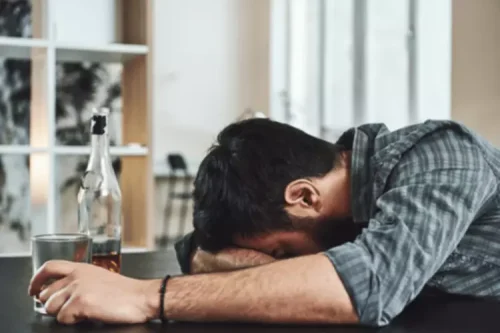
You may also find it helpful to incorporate some above-mentioned emotional anxiety coping strategies into your daily routine. No matter what’s causing your anxiety, developing a few coping skills can make all the difference. Just knowing you have some coping skills to rely on can provide comfort in times of stress. For example, meditation practices often involve breathing techniques and an emphasis on mental and physical grounding. The individual learns what does and doesn’t work, and can precisely measure the success of their practice.
But chronic stress can be harmful to your health and has been linked to high blood pressure, heart disease, depression, and addiction. Use them to help others cope with stress and create more balance in their lives. Stress serves an important purpose — it enables us to respond quickly to threats and avoid danger. But lengthy exposure to stress may lead to mental health difficulties like anxiety and depression, or increased physical health problems.

Simply pay attention to what you see, hear, taste, touch, and smell. So, if you are facing a stressful life event or you’ve undergone a major change, try planning ahead. Consider the skills you can use to cope with the challenges you’re likely to face.

For example, you could meditate when you’re out for a walk, riding the bus to work or waiting at your health care provider’s office. Many forms of sports and physical exercise are also effective for this reason. While some stress is normal and even helpful, stress over long periods can negatively impact your health. Practicing stress reduction strategies, like music therapy, muscle relaxation, visualization, or journaling can help you manage your stress so it doesn’t take over your life.

Emerging research suggests certain scents can alter brain wave activity and decrease stress hormones in the body. So don’t be afraid to ask a loved one for a hug if you need it. It’s good for both of you and it can be one of the simplest forms of stress relief available.
Progressive muscle relaxation involves relaxing all the muscles in your body, group by group. When you’re focused on the here-and-now, you won’t be able to ruminate about something that already happened healthy ways of coping with stress and you can’t worry about something in the future. Meditation and mindfulness take practice, but it can make a big difference in your overall stress level as it brings you back to the present.
Stress is, of course, a normal part of life, and we can’t always control what happens to us. What is under our control is making time for stress relief to recover, recharge, and rebalance our bodies. When this happens, nonessential activities like digestion are put on standby (Schneiderman et al., 2005). In contrast to the often ever-present feelings of anxiety, a panic attack usually comes on suddenly and unexpectedly. Panic attacks are characterized by a racing heart, quick and shallow breaths, chest pain, dizziness, and feelings of dread or doom. Someone having a panic attack may think they are dying or have a sensation that they are outside of their own body.
Attending an anxiety support group online or in person can also be helpful. Support groups can be found online or by asking a mental health provider for recommendations. In addition to in-the-moment coping strategies, there are also techniques you can use for managing anxiety symptoms over the long term. If negative thoughts overwhelm your ability to make positive changes, it’s time to seek professional help.
Don’t worry about seeming crazy — just tell yourself why you’re stressed out, what you have to do to complete the task at hand, and most importantly, that everything will be okay. When you cuddle or touch your pet, your body releases oxytocin — a hormone linked to a positive mood. Hiking and camping are great options, but some people don’t enjoy — or have access to — these activities.